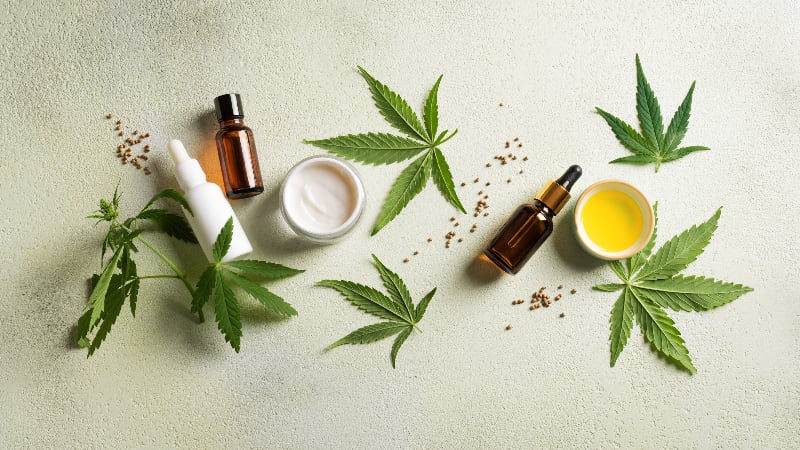Based on Euromonitor International’s research, Japan’s cannabis market grew six-fold from JPY4bn (USD26.3m) in 2019 to JPY24bn (USD173.8m) in 2023, with the surge attributed to rising demand for products offering relaxation, sleep improvement, and stress relief.
In Japan, CBD is a legal ingredient that can be imported and sold if it is produced overseas.
“2023 marked a pivotal moment and potential turning point for Japan’s CBD market. The revision of the Cannabis Control Law is expected to usher in clearer guidelines for CBD product sales and distribution, attracting major companies to enter the market this year.
“The increasing utilisation of CBD in various sectors, including health, beauty, food and beverage, is expected to reshape societal perceptions. Specifically for cosmetics, there is significant room for product development across the skin care, body care and hair care categories,” Aya Suzuki, Senior Analyst at Euromonitor, told CosmeticsDesign-Asia.
Suzuki added that increasing awareness of health and wellness has sparked the trend of consumers seeking natural and organic beauty products. This spells opportunities for CBD cosmetics, as its anti-inflammatory and soothing properties fit well into this trend.
Although the market is growing rapidly, most Japanese consumers still have limited understanding about CBD products.
Furthermore, concerns over product safety persist among local consumers due to reports of health issues linked to gummies containing hexahydrocannabihexol (HHCH), a synthetic cannabinoid, last year.
“A majority of Japanese consumers are still illiterate about the efficacy and safety of CBD, and the negative image of marijuana has also caused many people to express their concerns. Price is another hurdle [to adoption], as there are not many inexpensive products that reap economies of scale yet.”
As such, Suzuki believes that the key to the market’s success will be companies’ ability to educate consumers on the benefits of CBD products, emphasising regulatory compliance, quality control, and scientific evidence.
“Industry associations and companies need to work closely together to establish clear guidelines and standards that comply with Japanese regulations. In addition, strict quality control measures need to be implemented to build consumer confidence, as assuring the purity and authenticity of CBD products will help to dispel negative perceptions.
“Due to the reliance on imports for CBD raw materials, companies will need to establish supply chains that ensure a stable supply of reliable, legal, and high-quality products. It is also necessary to invest in educational campaigns backed by scientific research and expert recommendations in order to overcome misconceptions and prejudices about CBD.”
At the same time, development of unique CBD products that meet specific consumer needs and preferences also plays an important role.
For instance, skin care products such as face cream, serum, face mask, moisturiser, body lotion, balms and oils, which provide overall skin benefits and relieve or soothe symptoms of conditions such as eczema and psoriasis, will likely see increased application of CBD.
Hair care products containing CBD, including shampoo, conditioner and scalp treatment, which are expected to promote hair health and reduce scalp inflammation, may also become more prevalent.
“Given the highly competitive nature of the Japanese beauty market, considerable marketing and innovation efforts will be required to stand out with CBD products.”
Regulatory changes facilitate industry development
For years, investment and entry into the CBD market in Japan has been held back by regulatory uncertainty and the negative image surrounding its use.
Notably, the domestic illicit cannabis market in 2023 was estimated to be 2.5 times larger than the legal CBD market.
The relaxation of CBD regulations in other countries prompted Japan’s Ministry of Health, Labour and Welfare to assemble an expert panel to review the Cannabis Control Law in 2021.
Two years later, the Law was amended for the first time in 75 years, aiming to address regulatory gaps in the legal market and combat unlawful cannabis use.
The amendments are centred on two fronts, namely strengthening of existing regulations, and lifting the ban on the use of cannabis-derived medical products.
Among the changes, Epidiolex, a CBD-based antiepileptic medication, has been permitted for clinical use.
Additionally, hemp cultivation, previously restricted to fibre and seed collection for specific purposes, is now authorised for medical use.
On the other hand, tetrahydrocannabinol (THC), the main psychoactive constituent in cannabis, will continue to be regulated as a narcotic. Cultivation, sale and possession of cannabis, which have been punishable up until now, will incur stiffer penalties.
“This legislative amendment is expected to bring greater clarity on the regulatory landscape surrounding CBD use in Japan, thereby accelerating broader development of the industry.
“Despite the challenges that remain to be overcome, legal CBD sales are projected to outpace the illicit cannabis market by 2026, driven by increasingly health-conscious consumers who are looking for alternatives to traditional products like cigarettes and alcohol.”





